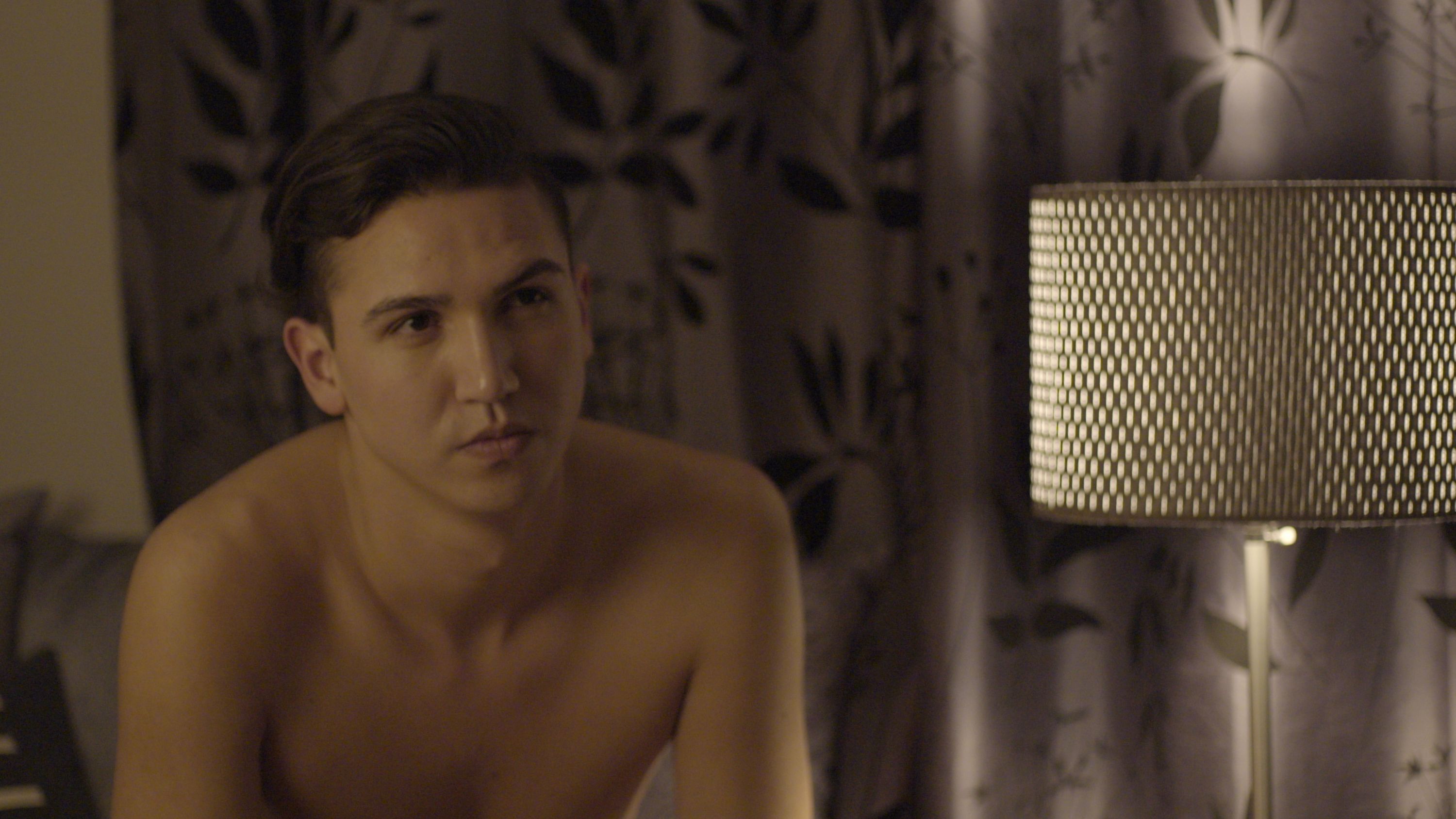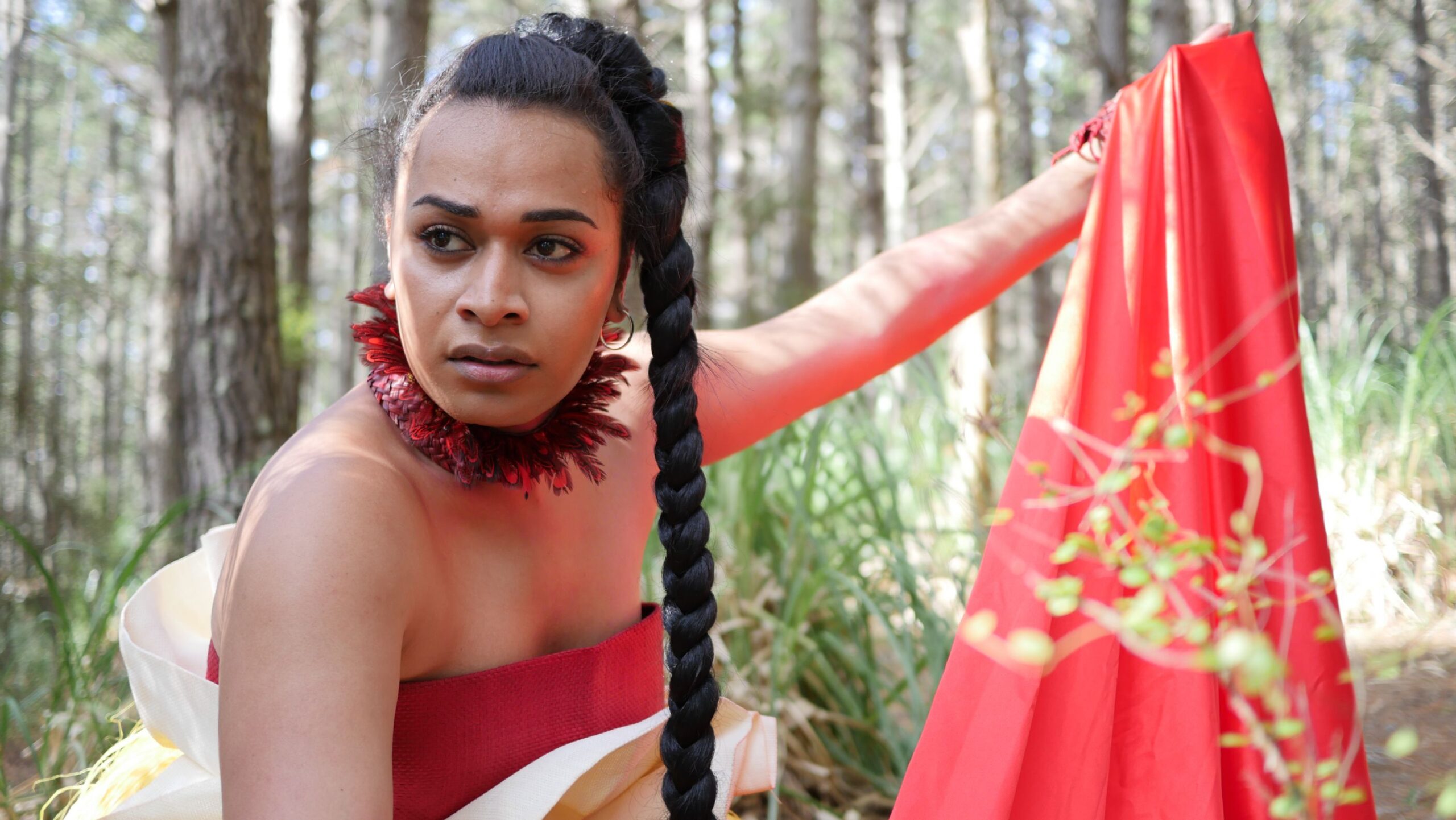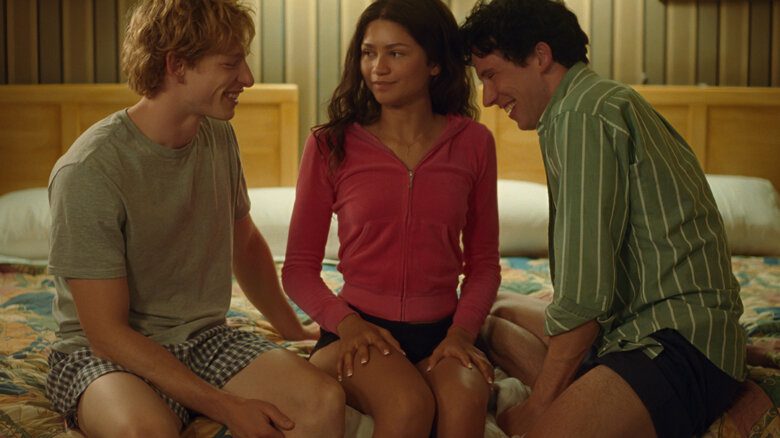Now in its 19th year, ImagineNATIVE brings the world’s best Indigenous cinema to Toronto. The festival has long been a home for queer and two-spirit artists and this year is no exception.
Xtra has scoured the program to find the short films you don’t want to miss.
Positions
Directed by Justin Ducharme

A still from Justin Ducharme's Positions. Credit: Courtesy imagineNATIVE
Like the protagonist of his third film, Position’s director Justin Ducharme hails from small town Manitoba. He also bears a striking resemblance to the lead actor (newcomer MacKenzie Kingdon-Prouty) right down to his laid-back skater style. Like the character, Ducharme spent time as a sex worker when he first arrived in Vancouver six years ago. But despite these similarities, Ducharme stresses that Positions is not a work of pure autobiography.
The film follows a day in the life of the main character as he navigates johns and judgments, making occasional calls home in between collecting his cash. The film tackles the shame around sexuality that two-spirit people often experience in their own communities, as well as the scrutiny all sex workers have to contend with from wider society. Simple and moving, the film asks viewers to rethink why we have so much anger around the decisions people make for their own bodies and the impacts this can have on their ability to navigate the world.
Mino Bimaadiziwin
Directed by Shane McSauby

Photo of Mino Bimaadiziwin's director, Shane McSauby. Credit: Courtesy imagineNATIVE
Shane McSauby’s sophomore film tells the story of Jim, a young Anishinaabe trans man (Cleo Keahna) who feels disconnected from his culture. His whole world changes when he meets a beautiful stranger (Grace Dove) who, seemingly, only speaks Anishinaabek. The viewers are taken on a journey that’ll make them wonder: Is she a dream? A figment of his imagination? An unexpected pathway to his past?
As their relationship blossoms, Jim begins to understand what he’s lost and how reconnecting with his culture can help him regain it.
Developed through the Sundance Institute’s native filmmakers lab, Mino Bimaadiziwin is a deceptively simple work that simultaneously explores cultural heritage, the impacts of colonialism, the complexity of gender identity and the need for community. Beautifully shot and touchingly performed, the film manages to be a coming-out story, a cry for self-determination and a romance — all rolled into one.
Fan Girl
Directed by Mario Faumui

Still from Mario Faumui's Fan Girl. Credit: Courtesy imagineNATIVE
Mario Faumui’s Fan Girl follows one young fa’afafine’s struggle with social rejection as she discovers herself through dance. The film follows her journey from public denigration to finding strength through the spirits of her ancestors.
The Samoans of the South Pacific had a much more complex understanding of gender than their colonizers. Along with male and female, they had the third gender of fa’afafine; people who are assigned male at birth but embody both masculine and feminine traits. As children, they often prefer girl’s clothes and toys, and ultimately grow up to take on typically feminine tasks within the family and society. However, with the arrival of colonizers and their strict laws, the fa’afafine suffered major setbacks, which they continue to fight today.
Fan Girl features a mix of voguing and traditional Samoan dance. Deftly shot, sharply choreographed and unapologetically queer, the film brings new meaning to the word fierce.
Stage Name: Victoria
Directed by Taran Morriseau

A still from Taran Morriseau's Stage Name: Victoria. Credit: Courtesy imagineNATIVE
From perfecting your face to the rigours of tucking to walking in heels, every queen remembers her first time in drag.
Taran Morriseau’s debut film sees him recount his birth as a performer, from his first experience on stage in Toronto through bringing it home to Fort William First Nation where he’s from. Though brief, Stage Name: Victoria packs a lot in — from discovering his drag-self to his deep connection with his mother, who remains a constant presence at his shows.
The film, which was developed through Wapikoni Mobile (a Montreal organization offering mentorship and training to Indigenous youth in audiovisual production), scored a coup when it had its world premiere this year at the Toronto International Film Festival. The festival is one of the most competitive platforms for film in the world and screening his film there is a definite vote of confidence for this budding artist. Whether it’s the stages of Fort William, the screens of Toronto, or beyond, Victoria is definitely on her way up.
Legacy: October 15, 2018 11:26 amAn earlier headline listed five films. This article only includes four.

 Why you can trust Xtra
Why you can trust Xtra


